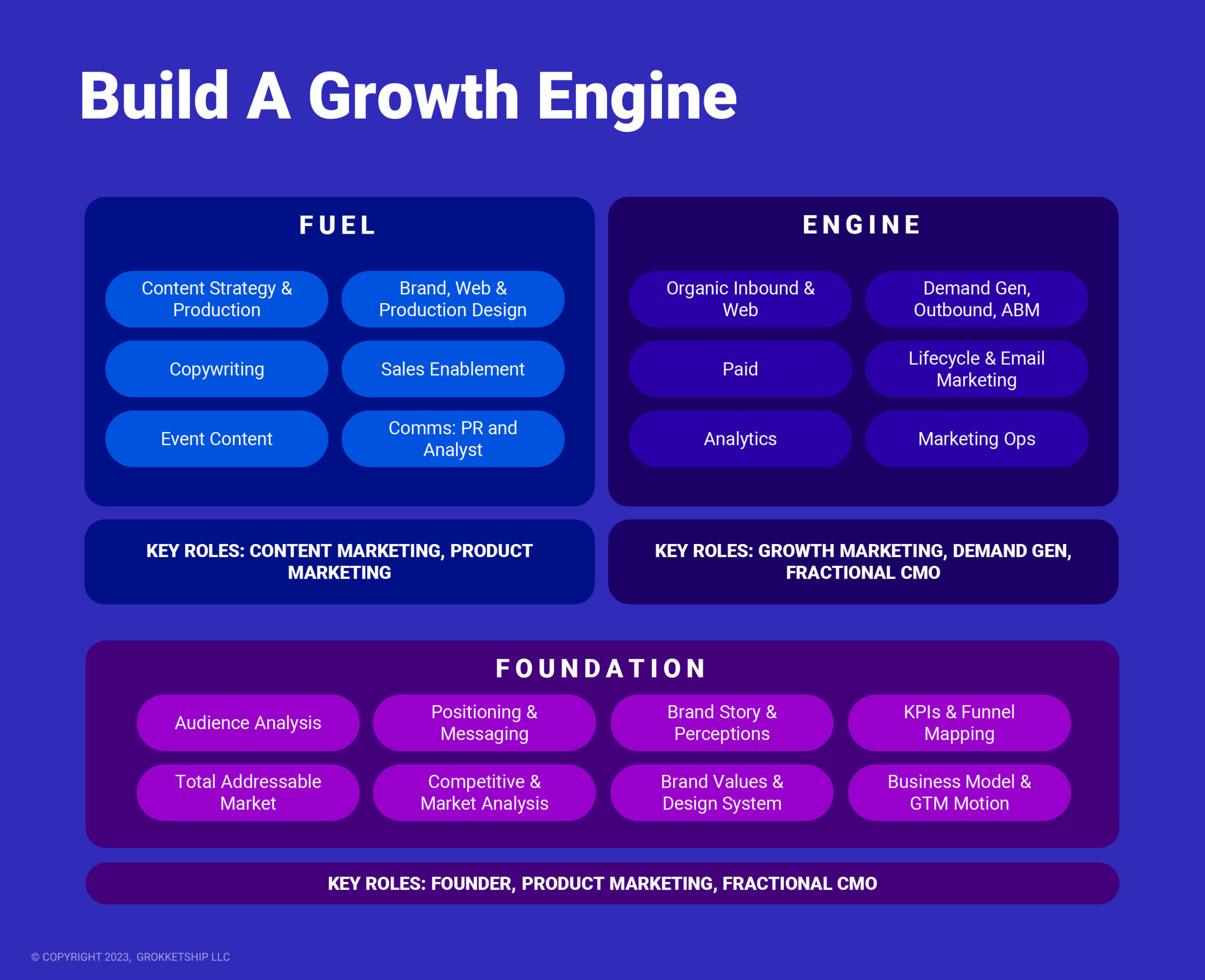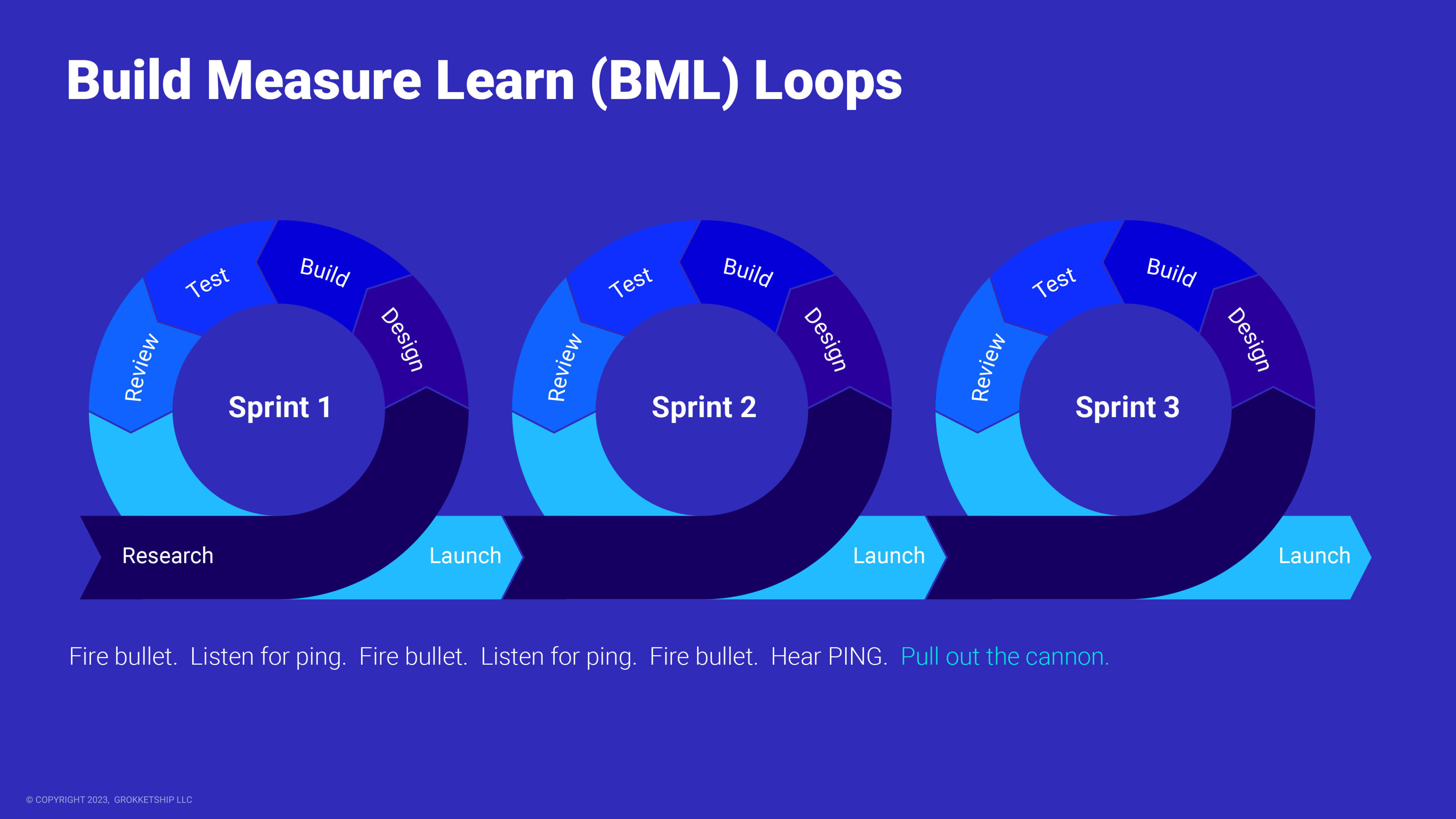What Is Fractional CFO?
A part-time, outsourced CFO, also known as a Fractional Chief Marketing Officer (CFO), is a marketing expert who is hired externally to holistically oversee and lead a company’s marketing efforts. A fractional CFO collaborates with other members of the executive team to ensure the marketing strategy aligns with overall business goals. For a more extended definition as well as an outline of our process, please see our article titled “What is a Fractional CFO?“.
Fractional CFO Subcategories
A fractional CFO’s expertise tends to lean toward one of three areas: brand marketing, product marketing or growth marketing. We cover the different types of fractional CFOs (as well as rates) more thoroughly in the article titled “What is a Good Fractional CFO Hourly Rate?“. Make sure to take your time and hire an experienced marketing professional.
11 Reasons to Hire a Fractional CFO
Running a business is a demanding task, and it can be overwhelming to handle every aspect on your own. As a business owner, you understand the importance of having a solid Go-To-Market strategy and improving customer acquisition channels. However, finding competent individuals to delegate these responsibilities to is a challenge. Hiring a fractional CFO can make a significant difference.
1. You Want to Scale
Let’s say you keep growing. There is a point where you can’t keep doing everything yourself. You want to take things to the next level. Now it’s time to bring in the big guns. And you want someone with domain expertise.
2. To Enlist Experienced Leadership
Often companies have various marketing specialists, but they don’t have a highly experienced leader holistically looking at the big picture. Or perhaps they do, but it’s the owner and the owner can’t continue doing everything themselves. What if you could hire someone who has already done what you are trying to do?
3. Part Time CFO, Full Time Results
Have you heard of the 80/20 rule? By following a specific Scope Of Work (SOW) with KPIs and milestones, a fractional CFO optimizes their time and expertise to drive maximum impact. Our goal is to build out a growth engine in 4 months. You will need to continue to give the engine fuel, but the scalable framework will be in place. Fractional CFOs bring strategic guidance, leadership, and a wealth of marketing experience to the table, enabling businesses to achieve substantial results within a shorter timeframe and at a fraction of the cost of hiring a full-time CFO.
4. A Marketing Agency Isn’t Enough
Unlike marketing agencies with large teams and multiple departments that often prioritize utilizing their in-house resources to justify overhead costs, a fractional CFO operates independently and has the freedom to prioritize strategies and channels that best align with your specific needs. Independent consultants are not bound by the constraints of a large agency machinery, allowing them to be more agile, strategic, and unbiased in their approach. Their focus is solely on delivering what truly benefits your business, offering a tailored and flexible marketing solution that maximizes results without any internal pressures or limitations.
5. Focus on Your Core Business
As a business owner, your time is valuable, and dedicating it entirely to sales and marketing might not be feasible. Hiring a fractional CFO allows you to focus on core business operations while entrusting marketing responsibilities to an experienced professional. This frees up your time to attend to other crucial tasks, enabling long-term growth for your business.
6. Deploy a Comprehensive Go-To-Market Strategy
Developing an effective marketing strategy is essential for driving growth, but it can be challenging to navigate the process independently. A fractional CFO can provide invaluable guidance and assist in creating an actionable marketing strategy tailored to your business goals. They can evaluate your readiness for marketing campaigns, accelerate the marketing process, and identify the best strategies for success. With their expertise, you can lay the necessary groundwork to drive marketing qualified leads and sales.
7. Efficiently Manage Marketing Efforts and Prioritize Tasks
Marketing involves numerous complex tasks and requires constant adaptation to industry changes and best practices. It can be overwhelming for small business owners to keep up with all these aspects while managing other responsibilities. A fractional CFO takes charge of managing marketing efforts, ensuring tasks are prioritized, and decisions are effectively communicated to the marketing team. They can provide specialized training, recommend marketing budget allocations, and streamline your marketing operations.
8. Diversify Your Marketing Channels
Expanding your marketing efforts across various channels is crucial for reaching a wider audience and maximizing your business’s potential. A fractional CFO brings a wealth of experience and industry contacts, enabling them to evaluate and diversify your marketing channels effectively. They can connect with key stakeholders, industry influencers, and agency managers to unlock new opportunities and refine your marketing strategies.
9. Gain an Outside Perspective and Expertise
A fractional CFO provides fresh ideas and new perspectives to your marketing approach. They offer professional expertise, keeping you updated with industry trends and recommending innovative ways to engage your target audience. With their extensive knowledge across multiple industries, they can bridge gaps in your research and suggest creative marketing solutions, helping your company stand out from the competition.
10. Improve Business Communication and Efficiency
Efficient communication and coordination between teams are vital for business success. A fractional CFO can enhance your business’s internal communications by providing management training, coaching, and feedback. They ensure that your marketing department is equipped with the necessary tools and skills to collaborate effectively, driving efficiency and productivity.
11. Hire a Marketing Team
Building a talented marketing team is crucial, but finding and retaining the right talent can be challenging, especially for small businesses. A fractional CFO can provide insights into hiring practices, including job descriptions, interview processes, and talent retention strategies. Their expertise helps you attract and leverage top marketing talent, giving your business a competitive edge.

Ready to Book a Call?
Ready to talk about how a Fractional CFO can help your business? Click the button below and schedule a free strategy session.
Steps, Scope of Work and Services
Many companies face the challenge of having Chief Marketing Officers (CFOs) engaged in low-value tasks that hinder their ability to focus on strategic initiatives. This is where Fractional CFO services come into play. Fractional CFO services and how they can help businesses optimize their marketing efforts, align with business objectives, and drive qualified leads.
Rapid Onboarding
The first step in Fractional CFO services is a rapid onboarding process, which involves gaining a comprehensive understanding of the business and its current marketing landscape. This includes analyzing stakeholder decision-making processes, identifying the ideal customer profile (ICP), reviewing current customer segmentation, and evaluating the effectiveness of existing positioning statements and value propositions. The fractional CFO also assesses the organization’s marketing resources, budget, vendor contracts, and marketing calendar to gain a holistic view of the marketing operations.
Customer Segmentation Audit
Improving customer segmentation is a crucial aspect of effective marketing strategy, and it can be achieved through a combination of qualitative and quantitative research methods. Qualitative research allows businesses to gain in-depth insights into customer preferences, behaviors, and motivations. Through techniques such as ethnographies, customer interviews, and surveys, businesses can uncover valuable qualitative data that provides a deeper understanding of their target audience. On the other hand, quantitative research enables businesses to collect large-scale, numerical data that helps identify patterns, trends, and correlations. By analyzing quantitative data such as demographics, purchase history, and online behavior, businesses can create more accurate and data-driven customer segments.
Marketing Channel Audit
To ensure comprehensive marketing optimization, the fractional CFO audits all marketing channels. This includes assessing search engine optimization (SEO) strategies (on-site, off-site, and technical), content marketing strategies, social media presence, partnerships, events, PR efforts, influencer marketing, email marketing, SMS marketing, cold calling, direct mail campaigns, referrals, word-of-mouth strategies, SEM/PPC/search and social ads, performance marketing, retargeting efforts, and website funnel optimization.
Establish Clear Objectives and KPIs
Define specific objectives and key performance indicators (KPIs) for each acquisition channel based on your business goals. This ensures clarity and helps you measure the success of your marketing efforts accurately. Clear objectives and KPIs provide guidance throughout the audit process and allow you to align your marketing strategies with your desired outcomes.
Create Build Measure Learn Loops
Implement an iterative approach to marketing by creating build-measure-learn loops. This involves developing strategies, executing them, measuring the results, and learning from the outcomes. By iterating this process, you can continuously optimize your marketing initiatives, adapt to changing market dynamics, and drive growth.

Go-To-Market /Comprehensive Marketing Strategy
After the initial audits, the fractional CFO formulates a go-to-market strategy based on the organization’s goals and market analysis. This strategy includes customer segmentation strategies, a competitive analysis, refined positioning statements, customer acquisition strategies, channel testing feedback loops, and funnel optimization. The fractional CFO identifies the resources required, such as technology stacks, employees, temporary employees/subcontractors, and vendor partnerships. A detailed timeline with milestones and key performance indicators (KPIs) is also established, along with recommended budget allocations.
Marketing Roadmap and Program Launch
Once the audit and strategy development phases are complete, the fractional CFO finalizes the marketing roadmap based on revisions and client requirements. The goal is to develop a plan that will significantly increase the number of incoming Sales Qualified Leads (SQLs). Launch meetings are conducted to align the team, deliverables, timelines, milestones, and KPIs. Contracts are finalized, and meetings with vendors, suppliers, and relevant stakeholders take place. The focus is on automating processes, building measure-learn loops, optimizing inbound and outbound sales engines, establishing marketing department cadence, and defining responsibilities and processes.
Automate and Monitor Data
Collect accurate data for each acquisition channel and monitor important metrics such as conversion rates, cost per acquisition (CAC), customer lifetime value (CLV), and return on ad spend (ROAS). Automation can streamline data collection and monitoring processes, allowing you to make data-driven decisions and identify areas for improvement.
Systemize and Automate Processes
Leverage the expertise of a fractional CFO to systemize and automate key marketing processes. This ensures efficiency and scalability for long-term growth. By automating repetitive tasks and streamlining workflows, you can maximize productivity and effectiveness. This enables your marketing team to focus on strategic initiatives and drive business growth.
Plan Execution and Results
The execution phase typically spans around four months, but timelines can be adjusted based on specific client needs. The fractional CFO oversees the implementation of the marketing plan, closely monitoring KPIs and metrics. Continuous analysis, optimization, and reporting are carried out to track progress and ensure the strategy is delivering the desired outcomes. The fractional CFO works in collaboration with the organization’s team, providing guidance, refining processes, and driving the growth engine.
The 5 Guiding Principles to Ensure Growth
The difference between a regular business and a true startup lies in the Total Addressable Market (TAM) and the speed of growth. To accelerate growth and create an automated growth machine, our fractional CFOs apply the following guiding principles:
1. Start with the Customer’s Needs
Prioritizing the customer’s needs and preferences is essential. By understanding their pain points, desires, and motivations, a fractional CFO can tailor marketing strategies and initiatives that resonate with the target audience, driving engagement, loyalty, and ultimately, growth.
2. Iterate through Build, Measure, Learn Loops
Adopting an iterative approach allows for continuous improvement and optimization. By building marketing strategies, measuring the results, and learning from the outcomes, a fractional CFO can refine and enhance initiatives over time, maximizing their effectiveness and driving sustainable growth.
3. Use Data Analytics to Make Informed Decisions
Leveraging data analytics is crucial in making informed marketing decisions. By analyzing key metrics and insights, such as customer behavior, conversion rates, and ROI, a fractional CFO can identify trends, patterns, and areas for improvement. Data-driven decision-making enables precise targeting, optimization of campaigns, and resource allocation, leading to more effective growth strategies.
4. Accelerate and Explode Growth
A fractional CFO’s goal is to drive rapid and exponential growth. By implementing high-impact marketing strategies, leveraging innovative tactics, and exploring new customer acquisition channels, a fractional CFO can propel the growth trajectory of a business. This involves deploying scalable marketing initiatives, optimizing conversion funnels, and maximizing the efficiency of marketing investments.
5. Long-Term Relationships over Short-Term Gains
Building and nurturing long-term relationships with customers is a priority. While short-term gains may provide immediate results, fostering lasting connections with customers cultivates loyalty, repeat business, and positive word-of-mouth. A fractional CFO focuses on creating exceptional customer experiences, delivering value, and building trust for sustained growth and success.
How Much Does a Fractional CFO Cost?
The cost of hiring a fractional Chief Marketing Officer (CFO) can vary based on several factors. On average, a good fractional CFO may charge around $200 per hour, while top-tier fractional CFOs may command rates of $300 per hour. It is generally recommended to be cautious if the hourly rate falls below $150, as it may raise concerns about the level of expertise provided.
Fractional CFOs are typically not paid a traditional salary but are engaged based on specific marketing initiatives and services outlined in a Scope of Work (S.O.W.). This allows for clearly defined objectives, milestones, and timelines. Instead of an hourly rate, fractional CFOs often work on a project basis with a flat rate, determined by the services they provide.
Compared to the cost of hiring a full-time CFO, engaging a fractional CFO offers the advantage of accessing high-caliber talent at a fraction of the cost. By utilizing a fractional CFO for a defined period and then leveraging a more cost-effective team to execute the plan, businesses can benefit from scalability, efficiency, and cost savings. For more information see our article titled “What is a Good Fractional CFO Hourly Rate?“.
Ready to Book a Call?
Ready to talk about how a Fractional CFO can help your business? Click the button below and schedule a free strategy session.





